Results
-
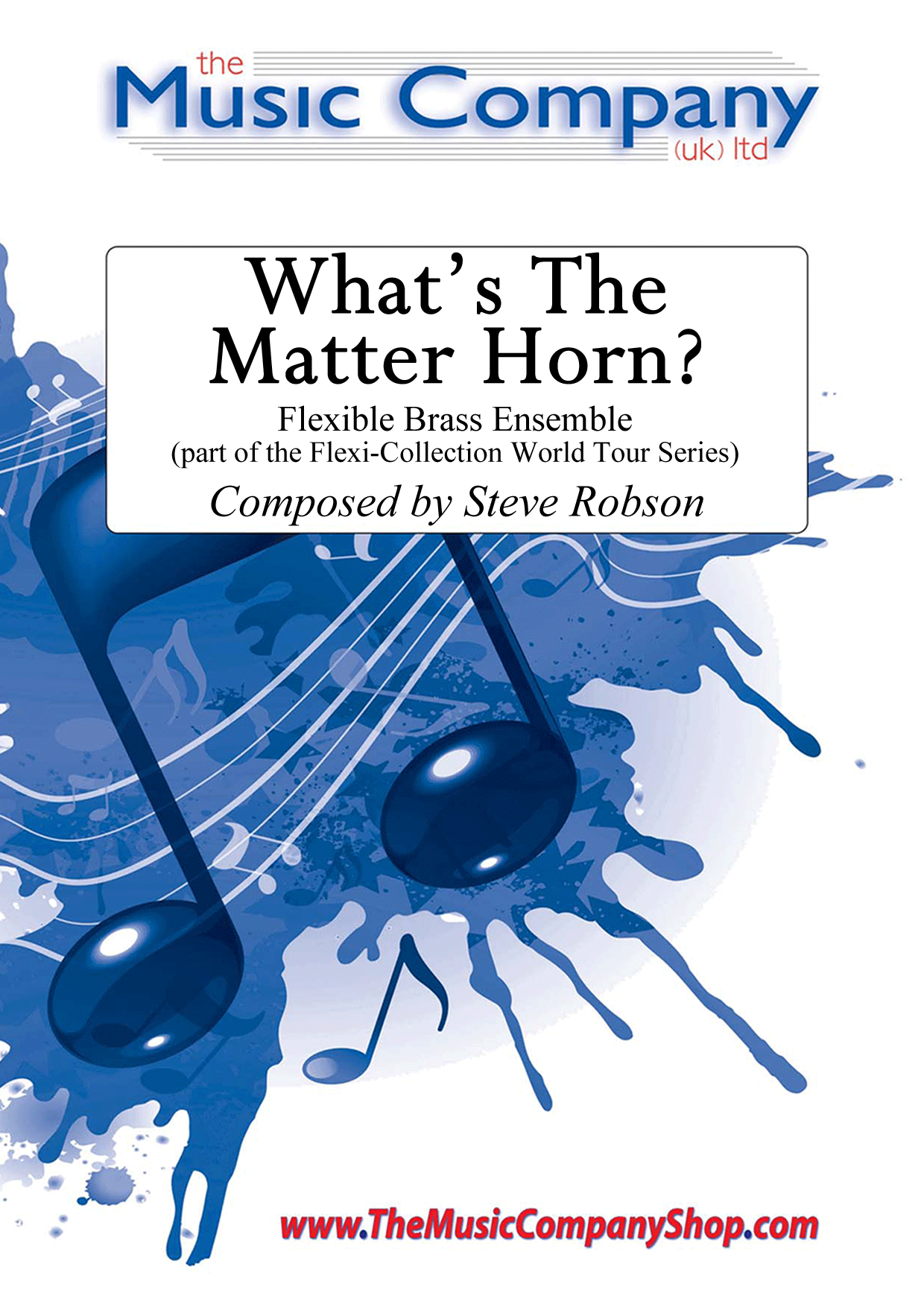 £20.00
£20.00What's The Matter Horn? - Steve Robson
Composed by Steve Robson and scored specifically for our Flexi-Collection World Tour Series. Steve has been inspired by fond memories of hearing Alpine Bands and seeing knee slapping dancers performing in Switzerland for this piece. It starts with some off-stage calls (which could even be from an Alpine Horn if one is available), and moves into a lively dance section, ending with a little yodeling! There are various ways to convey the yodeling through instruments, but a bit of vocal yodel practice could be a novel new addition to the band's warm-up routine!Our Flexi-Collection Series:Flexible scoring tailored to your needs - a perfect solution for expanding the repertoire of Junior/Youth brass bands and ensembles. The Flexi-Collection currently offers two series and these will be regularly expanded to offer groups an even wider variation of music. Based on four-part harmony, these collections provide brass groups with the advantage of complete flexibility when may not be balanced.Added Extras:Each part of The World Tour Series also includes rudimentary theory reference sheet andLearn Together Moments(warm-up passages which relate to each of the styles of pieces included in the whole series). The score also includes background/programme notes andCheck It Outideas to encourage the players to find out more about the music style and/or inspiration behind the piece.If players or instruments are missing, the show can still go on! The thoughtful scoring and arranging by Steve Robson now means that groups of all abilities have access to a truly flexible set of music for their needs.Available for Brass Band (with world parts included), pieces included in our World Tour Series offer flexibility in every sense of the word.(Available individually or as part of the completeFlexi-Collection World Tour Series Album).
Estimated dispatch 7-14 working days
-
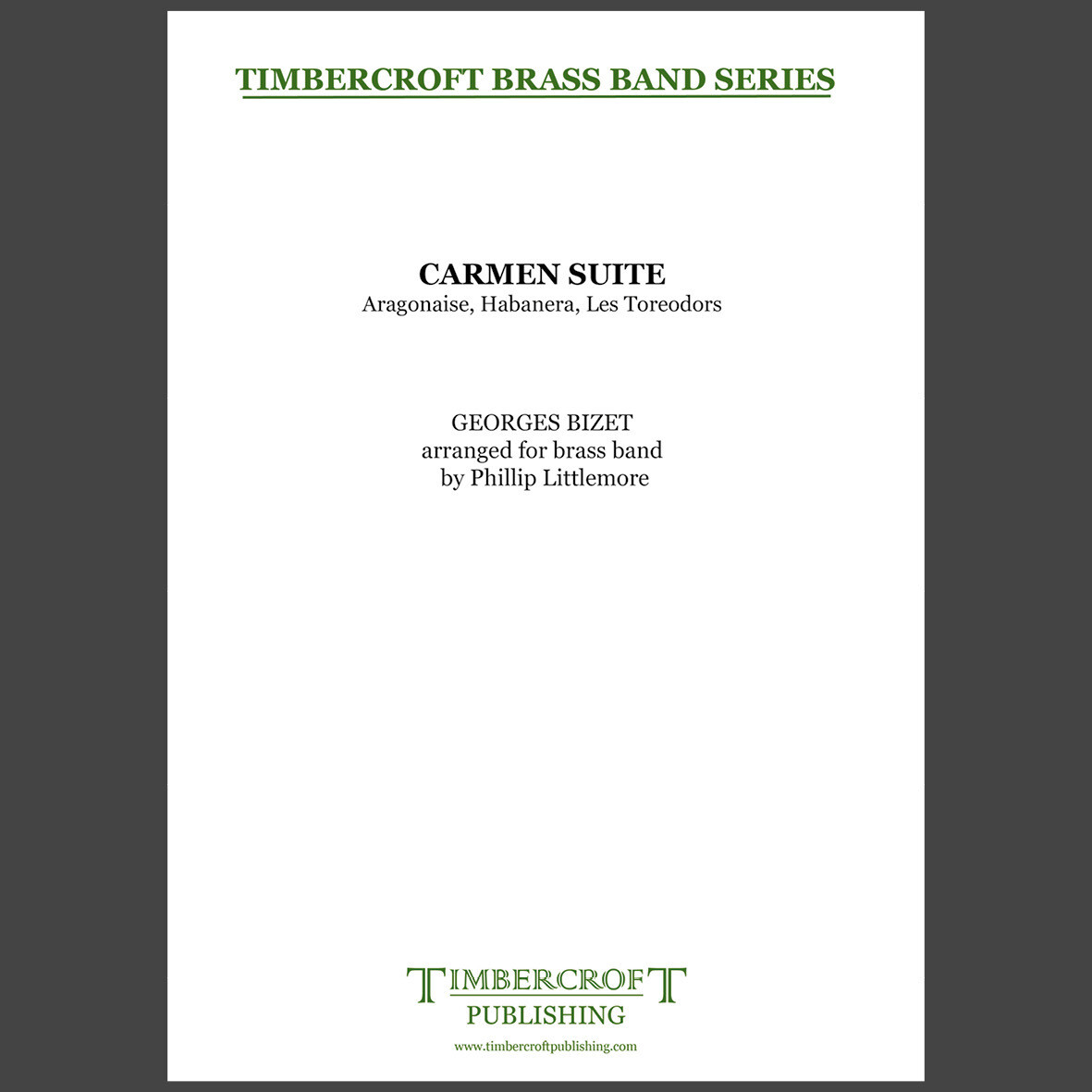 £40.00
£40.00Carmen Suite - Georges Bizet arr. Phillip Littlemore
Incredible as it seems today, Bizet's opera Carmen was met with a lukewarm reception at its premiere at the Paris Opera-Comique in 1875; critics condemned its subject matter as lurid and its music overly Wagnerian, and it ran for a mere 37 performances. Bizet died with a few days of it opening at the tragically early age of just thirty-six. Now hailed as the composer's supreme achievement, this colourful, passionate work continues to delight listeners around the world with its emotional, atmospheric music and the originality of its conception. Two orchestral suites were created in the latter part of the 19th Century each containing six pieces.This brass band arrangement brings together three of these pieces, the Aragonaise , the Habanera and Les Toreadors .Duration: c.7'00"Difficulty: 3rd Section and above
Estimated dispatch 5-7 working days
-
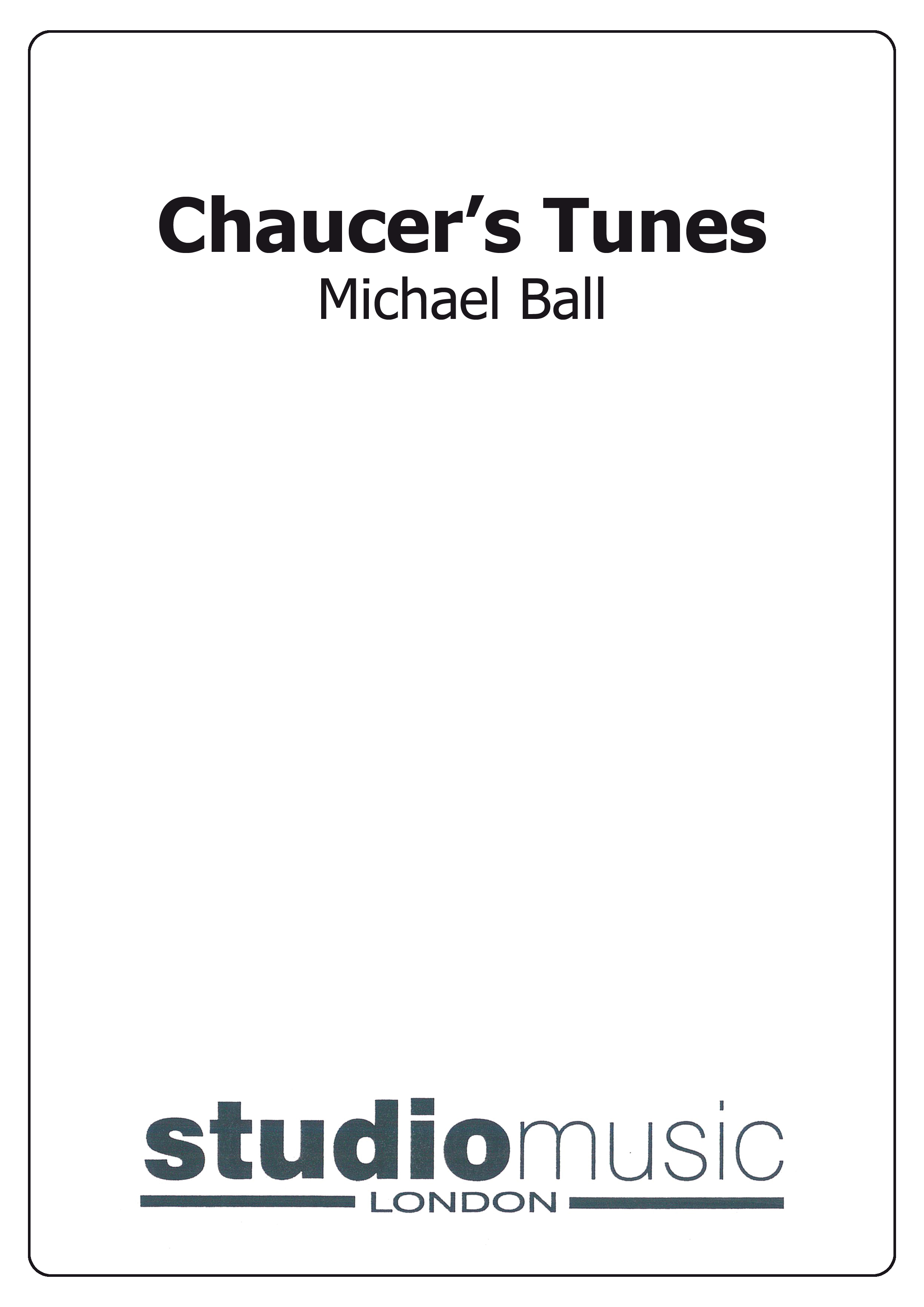 £94.95
£94.95Chaucer's Tunes (Score and Parts)
Chaucer's Tunes (two sections of which began life as the theme music for a BBC radio series The Road to Canterbury) consists of six interconnected sections. These can equally well be played either as one complete continuous movement or as independent individual pieces. Includes: Intrada; Fantasia: Alma redemptoris mater; Intermezzo: The Wife of Bath; Carol: Es ist ein' Ros' entsprungen; Chase: Chauntecleer and the Fox; Finale.
Estimated dispatch 7-14 working days
-
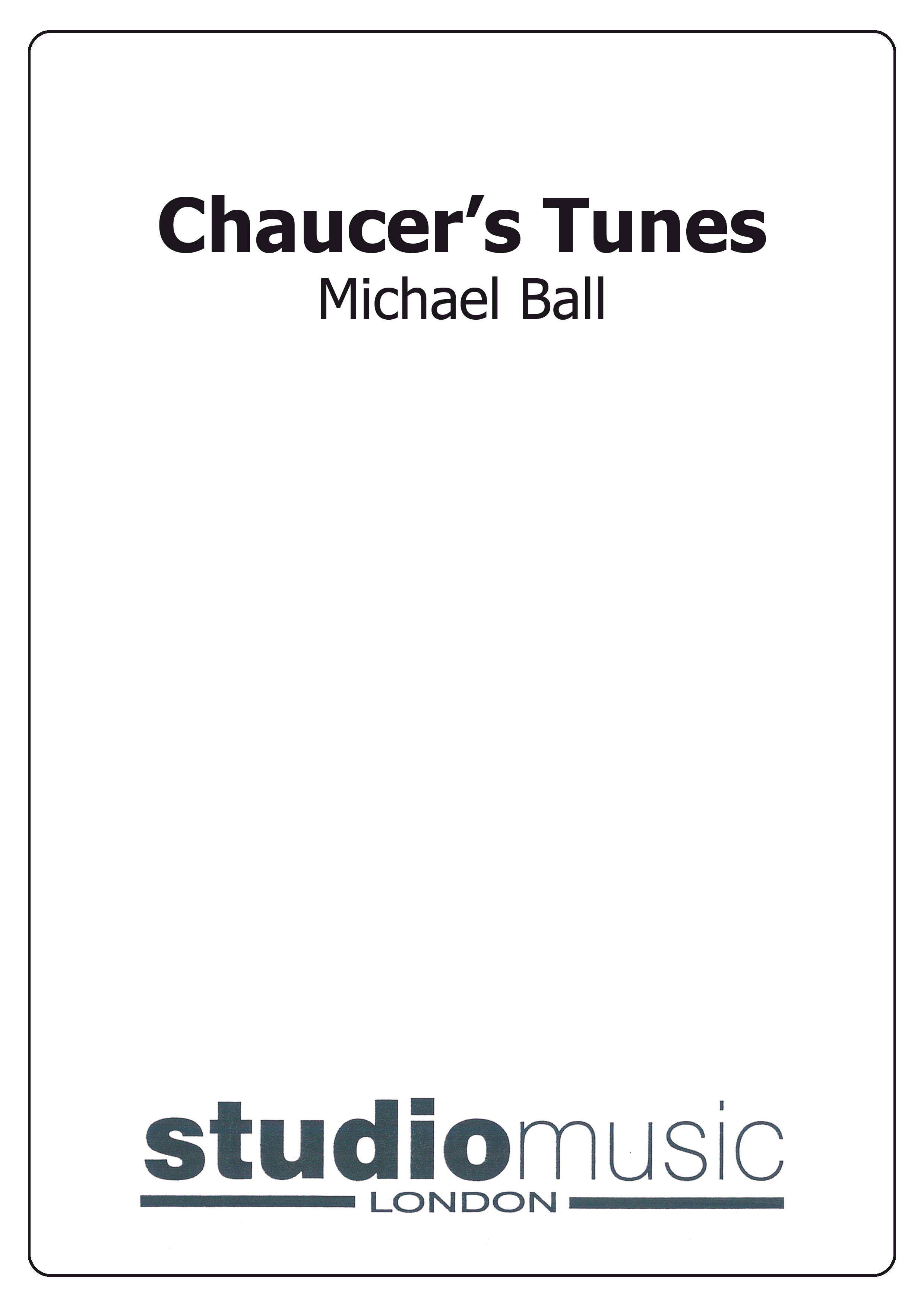 £44.95
£44.95Chaucer's Tunes (Score Only)
Chaucer's Tunes (two sections of which began life as the theme music for a BBC radio series The Road to Canterbury) consists of six interconnected sections. These can equally well be played either as one complete continuous movement or as independent individual pieces. Includes: Intrada; Fantasia: Alma redemptoris mater; Intermezzo: The Wife of Bath; Carol: Es ist ein' Ros' entsprungen; Chase: Chauntecleer and the Fox; Finale.
Estimated dispatch 7-14 working days
-
 £36.07
£36.07The Piano Preludes (Brass Band) George Gershwin arr. Rob Bushnell
First performed by the composer at the Roosevelt Hotel in New York in 1926, The Piano Preludes (or Three Preludes) are a collection of short pieces by George Gershwin, show casing early-20th-century American classical music, as influenced by jazz. Gershwin originally planned to compose 24 preludes, wrote seven, performed only six publically and was further reduced to three when first published. The work was dedicated to friend and musical advisor Bill Daly. The first prelude begins with a five-note blues motif. It features syncopated rhythms based on the Brazilian baiao and minor-seventh chords throughout. The second prelude, which Gershwin said was "a sort of blues lullaby" consists of two sections: the first a "lazy" melody upon a steady beat of crotchets; the second the bass takes the melody, continuing with the steady beats. The third prelude was called "Spanish" by Gershwin, and features a question-and-answer type melody, starting in a minor tonality and ending in major one. This arrangement is for the British-style brass band, with alternative parts for horns in F and bass-clef lower brass. To view a follow-the-score video please visit www.youtube.com/watch?v=XqIQ0j1SWlc PDF download includes score and parts. Sheet music available from: UK - www.brassband.co.uk USA - www.solidbrassmusic.com Difficulty Level: 1st Section + Instrumentation: Soprano Cornet Eb Solo Cornet Bb Repiano Cornet Bb 2nd Cornet Bb 3rd Cornet Bb Flugel Horn Bb Solo Horn Eb 1st Horn Eb 2nd Horn Eb 1st Baritone Bb 2nd Baritone Bb 1st Trombone Bb 2nd Trombone Bb Bass Trombone Euphonium Bb Bass Eb Bass Bb Timpani Drum Kit Mallet Percussion
In stock: Estimated dispatch 1-3 days
-
 £49.95
£49.95RAMEAU REVISITED - Rameau arr. Peter Graham
Additional Score: 24.95Rameau Revisited takes themes from the operas and keyboard works of the great Baroque composer Jean-Phillipe Rameau and recasts them to exploit the various colours of the modern brass band. The two outer movements, Marche and Tambourin are tour de force display pieces for the full ensemble while the three inner movements, Rondeau, La Joyeuse and Danse showcase the horn, cornet and lower brass sections in turn.
In stock: Estimated dispatch 1-3 days
-
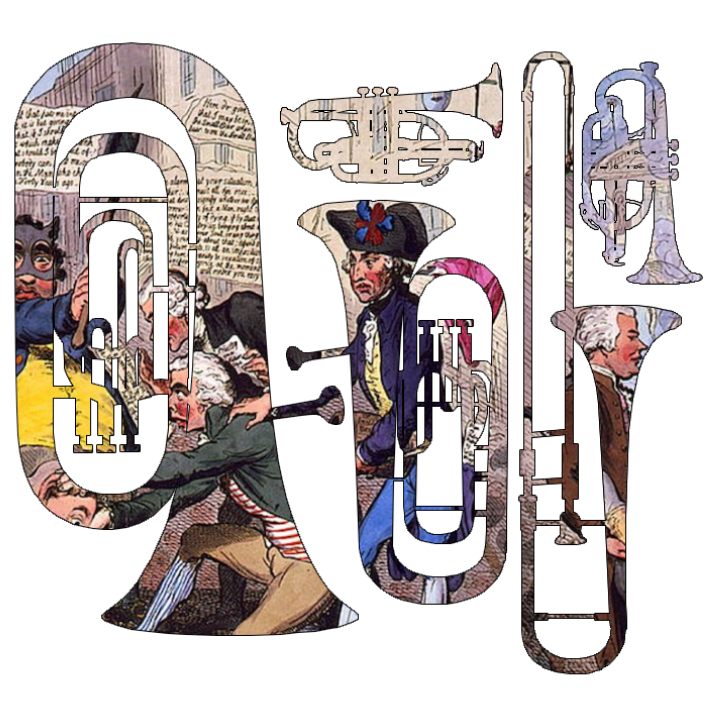
Die Politik | Euphonium & Baritone Duet | Richard Genee arr. Dario Salvi
Richard Genee, a highly skilled librettist, playwright and composer is one of the lesser known names in the Viennese repertoire, yet his work is justifiably famous. He is best known for his libretto of Die Fledermaus, Johann Strauss II's most famous operetta, but also wrote many pieces of music in his own right, including the 1876 operetta 'Der Seerkadet'. Die Politik, subtitled: 'Politics requires Wisdom and Skill' was originally a comic duet for two male voices, discovered by Dario Salvi in the US Library of Congress, and arranged here for Euphonium and Baritone Duet with Brass Band.
-
£36.00
Kort samba og kort mambo - Svein Fjermestad
This is two short pieces at grade level 1,5 written in samba- and mambo style as the titles indicates.The percussion parts are ad lib and are intended to be customized to the number of players and instruments available.
Estimated dispatch 12-14 working days
-
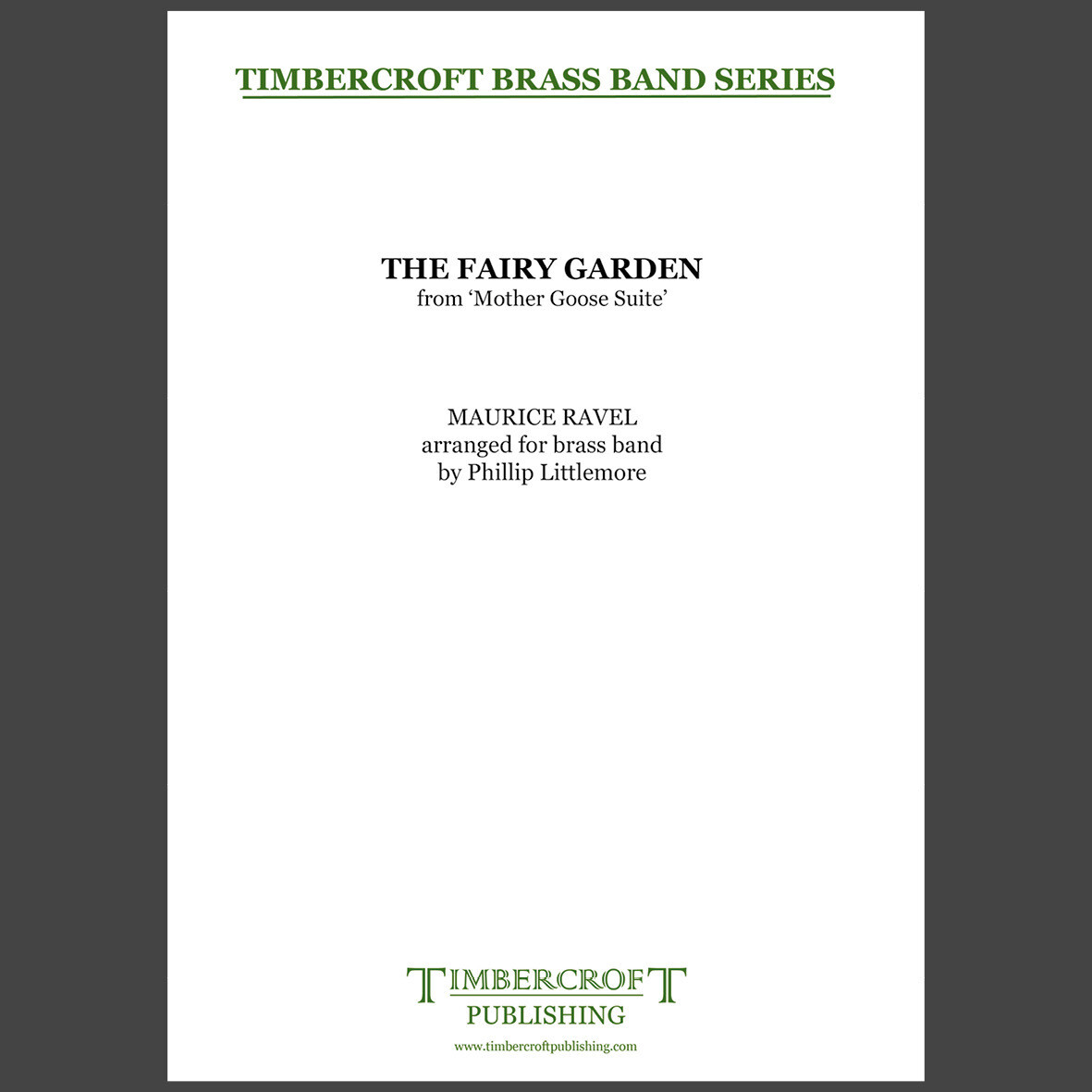 £30.00
£30.00Fairy Garden, The - Maurice Ravel arr. Phillip Littlemore
Ravel wrote his five short piano pieces entitled Ma Mere l'Oye (Mother Goose) for two young children, Mimie and Jean Godeski in 1910. The suite invites us to the enchanted world of childhood through these five atmospheric tales. The final part of Ravel's suite is a grand finale, although where Ravel got his inspiration for the fairy garden is unknown. Whatever its origin, it certainly is a delightful piece of music - slow in tempo, quiet to start, with rich harmonies and delicate solos, all leading to a tumultuous climax.Duration: 3'00"Difficulty: Suitable for all grades
Estimated dispatch 5-7 working days
-
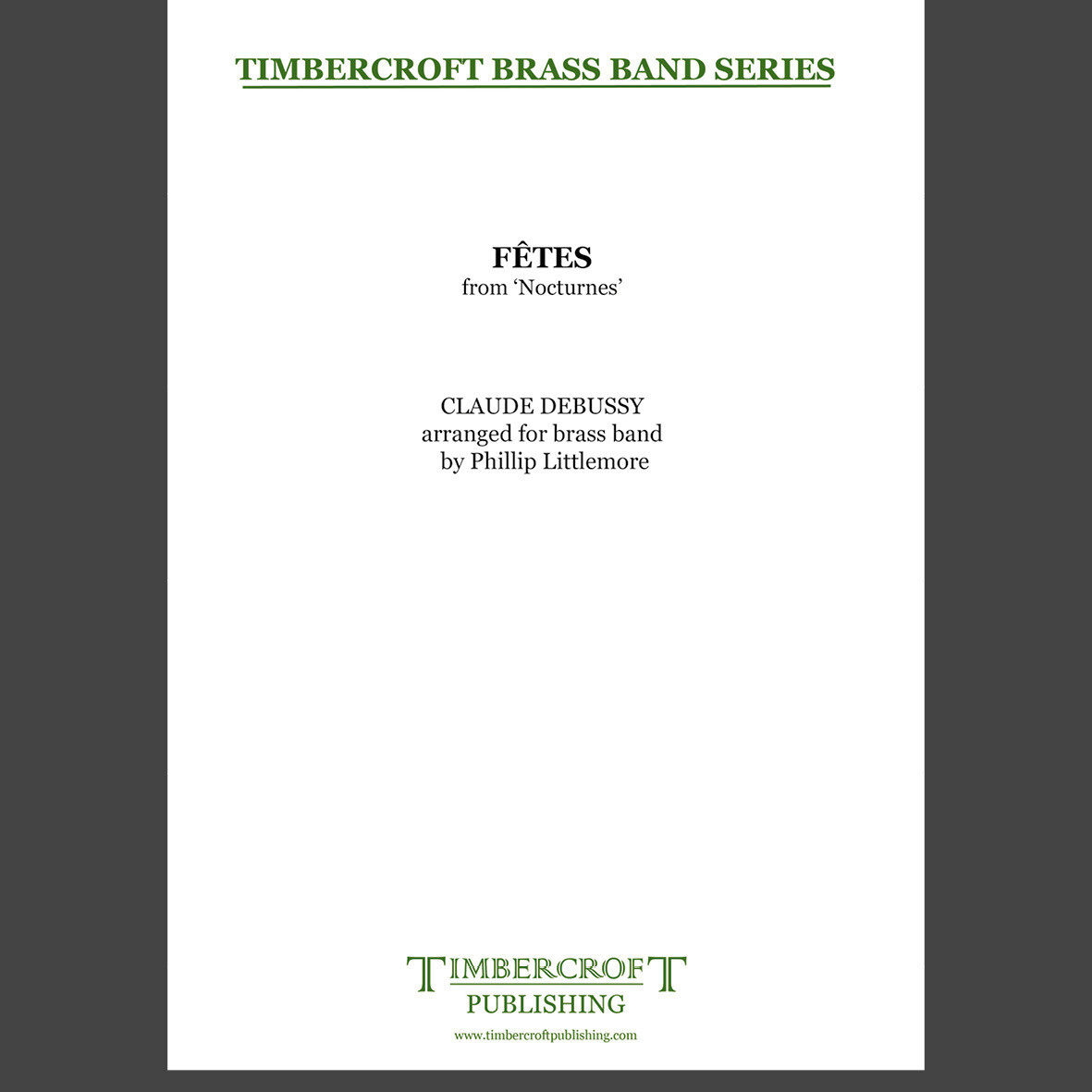 £40.00
£40.00FAtes - Claude Debussy arr. Phillip Littlemore
Debussy's Nocturnes are a set of three orchestral pieces inspired by three paintings by the American James McNeill Whistler from the 1870s. These three paintings, also entitled Nocturnes, were studies in light and shade offering an impression of landscapes and objects. The second movement, Fetes (Festivals) offers a dancing, vibrating rhythm with sudden flashes of ight. There is also a procession, described by Debussy as a dazzling fantastic vision, which passes through the festive scene and becomes merged in it (letter J in the score). However the background remains the same driving dance-like work.Debussy wrote the Nocturnes between 1897 and 1899 and the first two movements, the first being Clouds, received their premiere in Paris in 1900. The first performance met with a cool critical reception and Debussy made many revisions thereafter to all three movements.Duration: 6'00"Difficulty: 2nd section and above
Estimated dispatch 5-7 working days
